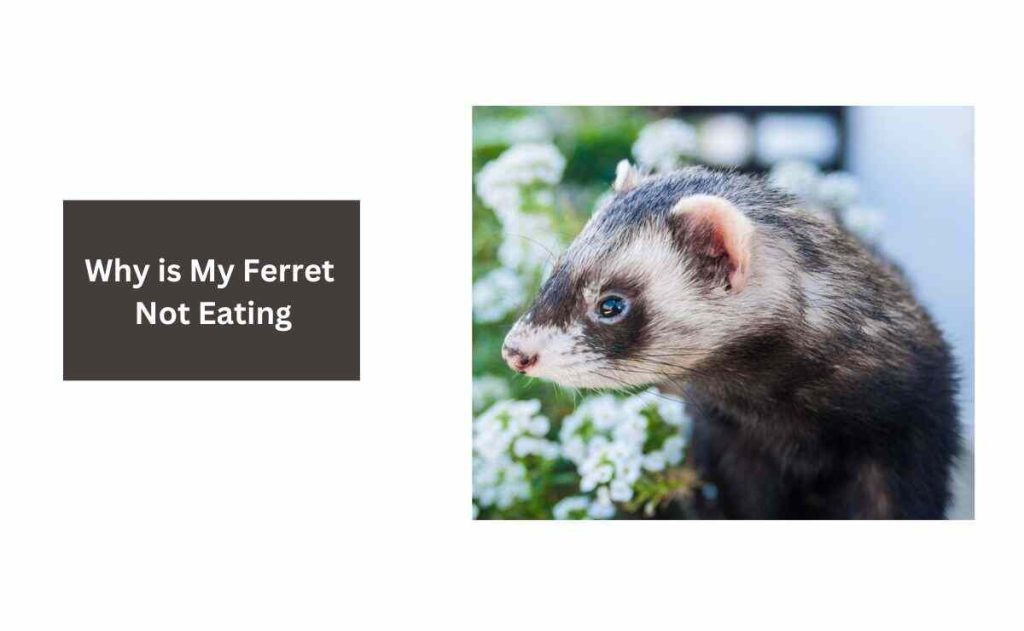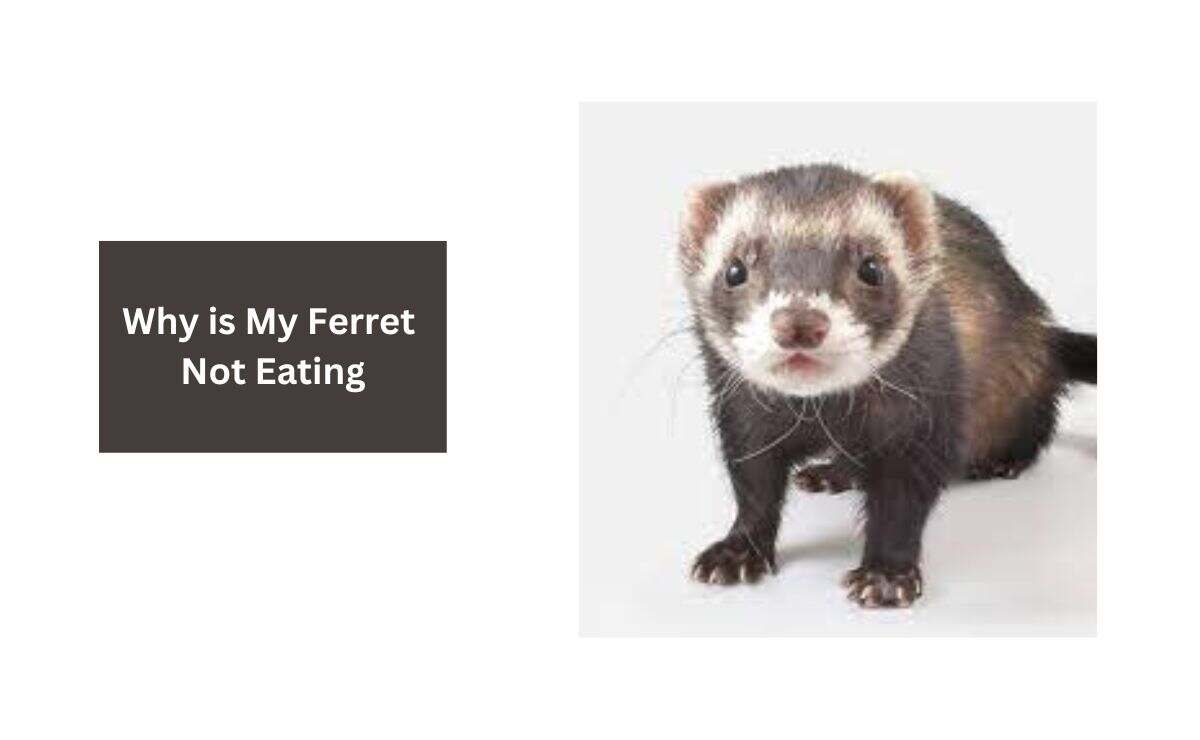Ferrets are wonderful pets and are known for their playful, curious nature. However, as like other animals, sometimes they can experience health issues that will impact their appetite. If your ferret is not eating or drinking as much as usual, it could be a sign of an underlying problem.
As a responsible pet owner, it’s important to understand the potential reasons why your ferret may have lost its appetite and how you can help them get back to good health. In this article, we’ll explore some common causes for why your ferret may not be eating and provide tips on what you can do to encourage them to eat again.
Why is My Ferret Not Eating?

If your ferret isn’t eating, there are a few potential causes to consider.
First, it could be due to illness or injury. Ferrets can sometimes become ill or injured without showing any obvious signs of distress. If you suspect this is the case, take your pet to the vet for a thorough examination and diagnosis.
Second, it might be caused by stress. Ferrets can experience significant levels of stress due to changes in their environment or routine. Make sure that your ferret’s home is comfortable and secure, and try to stick to a consistent feeding schedule.
Finally, it could simply be because they don’t like their food or have lost interest in it. Try offering a variety of different foods in small portions and see if that helps stimulate their appetite. Additionally, make sure that the food you give them is fresh and not expired or spoiled.
Diet of A Ferret
A pet ferret’s diet should consist primarily of high-quality ferret food, which is specially formulated to provide the animal with all of the necessary nutrients. It’s important to choose a food that is made up of at least 30% protein and 18-20% fat, as these are essential for your ferret’s health.
Besides, you can supplement the diet with fresh foods like cooked chicken or eggs, as well as small amounts of fruits and vegetables.
Ferrets also need plenty of fresh water available at all times. Water bowls should be cleaned daily and changed out frequently in order to ensure your pet has access to clean drinking water.
Lastly, it’s important to remember that your ferret may be prone to obesity if given too much food or treats, so make sure to monitor their weight regularly and adjust their diet accordingly.
Do ferrets eat every day?
Yes, ferrets need to eat every day. They have a high metabolism, so they require more frequent meals than other animals. An ideal diet for ferrets is one that is high in animal proteins and fat with minimal carbohydrates.
Ferrets should be fed a variety of different foods to ensure they get the nutrition they need. A combination of wet and dry food, as well as fresh fruits and vegetables, is recommended. Ferrets also enjoy treats like raw chickens or cooked meat.
It’s important to feed your ferret at the same time each day so they know when to expect their meal. It’s also important to remember that ferrets are prone to obesity, so it’s important not to overfeed them and monitor their weight closely.
How many days can a ferret go without eating?
A ferret can generally go about 3-4 days without eating. This is due to their small size and high metabolism, which means they need to eat more frequently than larger animals. During this time, it’s important to provide them with plenty of fresh water so that they don’t become dehydrated.
It’s not advisable for a ferret to go any longer than 4 days without eating, as they could develop serious health problems such as liver damage or organ failure. If your ferret isn’t eating for more than 4 days, it’s best to contact your veterinarian as soon as possible. They may suggest changing the type of food you’re offering or providing additional supplements to encourage your ferret to start eating again.
If you’re ever worried that your ferret isn’t eating enough, it’s important to monitor their weight and watch for signs of lethargy or weakness.
What to do when a pet ferret stops eating?
If your pet ferret stops eating, it is important to take them to a vet as soon as possible. This can be a sign of an underlying health issue or other problem that needs to be addressed.
The vet may suggest switching the type of food you are offering, as ferrets can get bored with the same diet and need variety. If the ferret has lost interest in their food, try adding something new like cooked eggs, cooked chicken, or canned cat food. Make sure that all foods are free from additives and preservatives.
It is also important to ensure that your pet ferret has access to plenty of fresh water and is not being overfed treats. Too many treats can make them lose their appetite for regular meals. Additionally, make sure they have plenty of opportunities for play and exercise throughout the day so they stay active and healthy.
Should I force feed my ferret?
No, you should not force feed your ferret. This can cause stress and can even be dangerous for your pet. Instead, you should look for signs that your ferret is not eating enough. If they are losing weight or becoming lethargic, it is likely that they are not getting the nutrition they need.
Make sure to offer them a variety of foods to ensure they are eating a balanced diet and speak to your vet if there are any concerns about their health. Make sure Ferrets cage is clean and comfortable as this will encourage them to eat more.
Conclusion
In summary, there are many reasons why a ferret may not be eating, ranging from dental issues to underlying medical conditions. It is important to monitor your pet’s behavior and seek veterinary care if necessary. Providing a varied and balanced diet, as well as ensuring access to clean water at all times, can also help prevent feeding problems in ferrets.
By understanding the common causes of lack of appetite in ferrets, you can take the necessary steps to promote their health and well-being. Remember to always consult with a veterinarian if you have concerns about your pet’s eating habits. With proper care and attention, you can help ensure that your furry friend stays healthy and happy for years to come.
